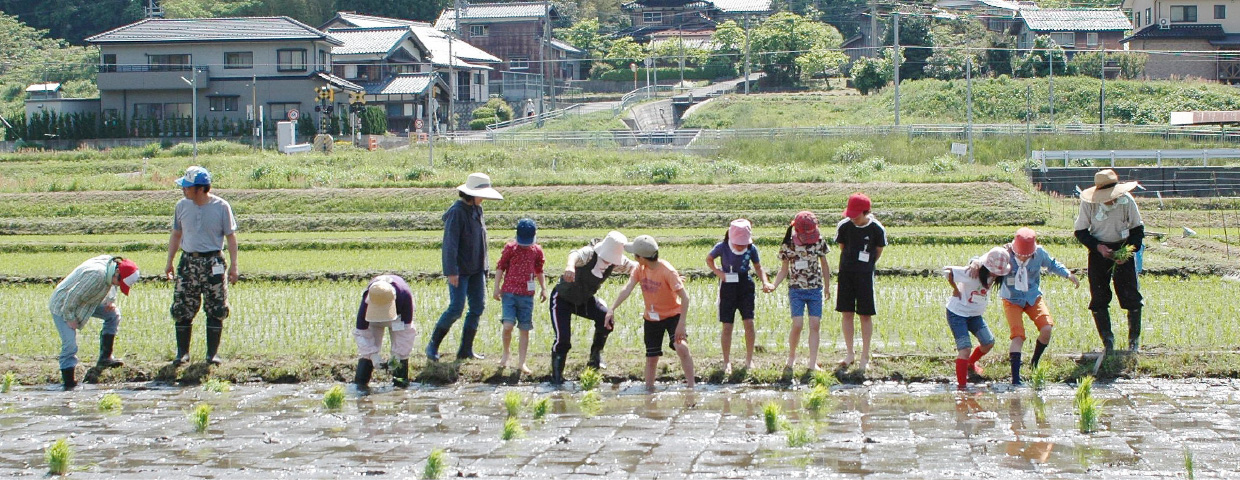Announcement: SDM 2014 Project Selection Results
The Executive Board of the Satoyama Development Mechanism (SDM) is pleased to announce the six recipients of grants offered through the SDM 2014. The Board would like to express our sincere gratitude and appreciation to the organisations that submitted project proposals.
The positive response from IPSI members for this first round of SDM despite the short notice has been gratefully received by the all organisers of this collaborative activity. Continued support from all IPSI Members, as well as their active submission of project proposals to future calls from the SDM Secretariat will be highly appreciated.
Background
In 2013, the Institute for Global Environmental Strategies (IGES), the United Nations University Institute for Advanced Studies (UNU-IAS), and the Ministry of the Environment of Japan (MOEJ) jointly launched the “Satoyama Development Mechanism (SDM)” as a collaborative activity under the framework of IPSI to facilitate further implementation of IPSI activities by providing seed funding to promising project proposals.
Outline of the selection process
For its second year of operations, the SDM announced the call for proposals for the SDM 2014 in June 2014. By the deadline for applications (end of August), the SDM Secretariat had received a total of 20 applications, 18 of which were from eligible IPSI members, presenting promising proposals for the implementation and promotion of the concept of the Satoyama Initiative.
Board Meetings and an Advisory Meeting were convened in October 2014, where the Executive board carefully considered the eligible projects for the SDM 2014 in consultation with the Advisory Group, and in line with the project selection criteria. From the set of competitive proposals, the following 6 projects have been selected.
List of recipients for the SDM 2014
|
Applicant |
Project type |
Country |
Project title |
Region |
Funding |
|
AERF (NGO/CBO) |
1.Community/ field-based project implementation |
India |
Promoting Green Entrepreneurship for conservation of Satoyama landscapes in the North Western Ghats, India |
Asia |
$9,150 |
|
A Rocha Ghana (NGO/CBO) |
1.Community/ field-based project implementation |
Ghana |
Restoration of Community Sacred Forest to Enhance Socio Ecological Landscape in the Effutu Traditional Area, Ghana |
Africa |
$10,000 |
|
National Dong-Hwa University (Academic) |
1.Community/ field-based project implementation |
Chinese Taipei |
Tailoring Satoyama initiative concepts to national and local context: A Case Study of the collaborative planning process of a Rice Paddy Cultural Landscape in an Indigenous Community, Taiwan |
Asia |
$10,000 |
|
APAIC (NGO/CBO)
|
2.Research activities |
Peru |
Evaluation of the biodiversity chain in barren landscapes ecosystems restored through reforestation with Caesalpinea spinosa, in the southern semiarid coast of Peru |
Americas |
$9,750 |
|
Landcare Germany (NGO/CBO) |
3.Workshops / Conferences / Meetings |
Romania |
Fostering cooperative nature conservation to preserve and develop the cultural landscape (SEPL) in the Carpathian Region of Pogány-havas |
Europe |
$10,000 |
|
SPREP (Intergovernmental) |
4.Capacity building / Outreach |
Pacific region |
Healthy islands, oceans and people |
Pacific |
$10,000 |
Consideration of the proposals
The selection of the final recipients was conducted based on the SDM Project Selection Criteria, with particular focus on their ability to demonstrate the usefulness of their projects for stakeholders to pursue the sustainable use of SEPLS. The likelihood for the projects to achieve proposed outcomes within the next one to two years, as well as their ability to demonstrate a concrete and detailed plan based on the available funding, were also considered as important criteria for selection. Projects with strong potential to become IPSI Collaborative Activities were rated highly, as well as those with a clear prospect for future up-scaling beyond the SDM. The overall balance of project types and their geographical distribution was taken into account in the selection process. Although all the proposed projects had a strong appeal, projects fulfilling the above elements were prioritised against others which had not yet reached the same level of detailed planning. For those who were not selected this year, it is sincerely hoped that their proposals will be further developed by the next round of SDM, and that updated proposals will be submitted once again at the next opening of the call for proposals.
Outcomes from SDM 2014
The contents of the activities as well as outcomes of the selected projects will be compiled and shared with all IPSI members during the subsequent implementation phase. During this phase, the Executive Board will continue to act as the implementing body of the SDM.
This announcement is available in PDF format here: [SDM2014]Project Selection Results



